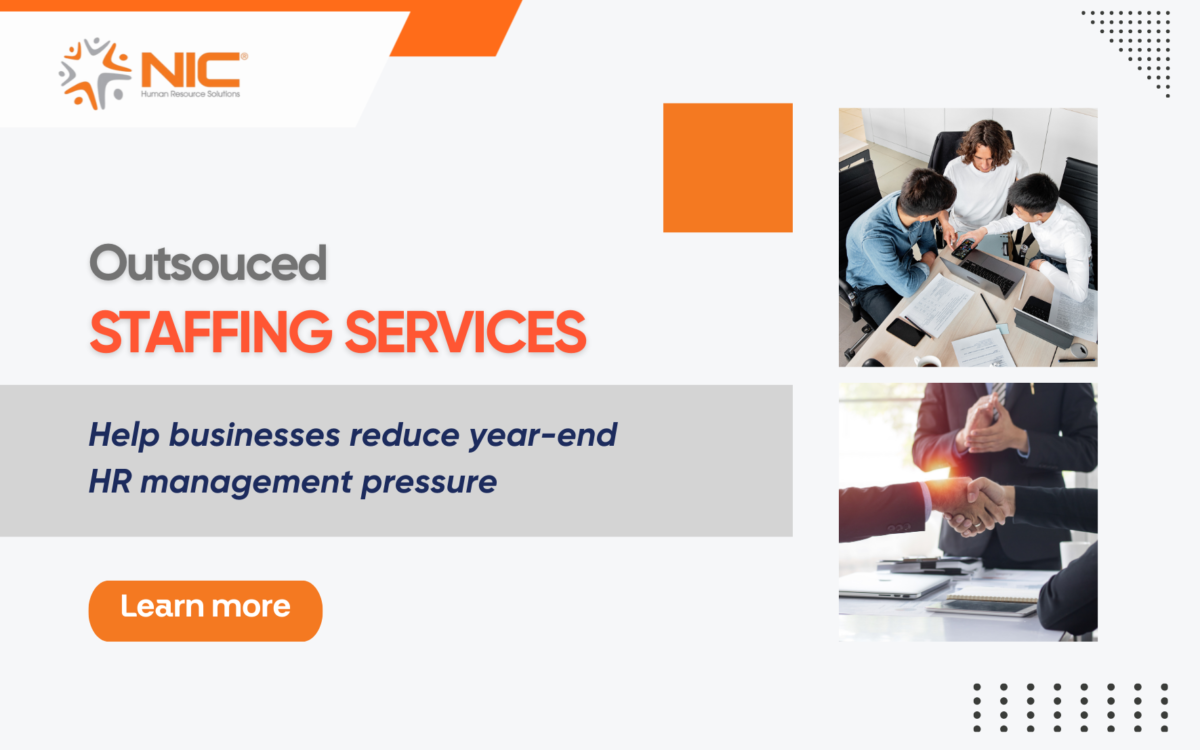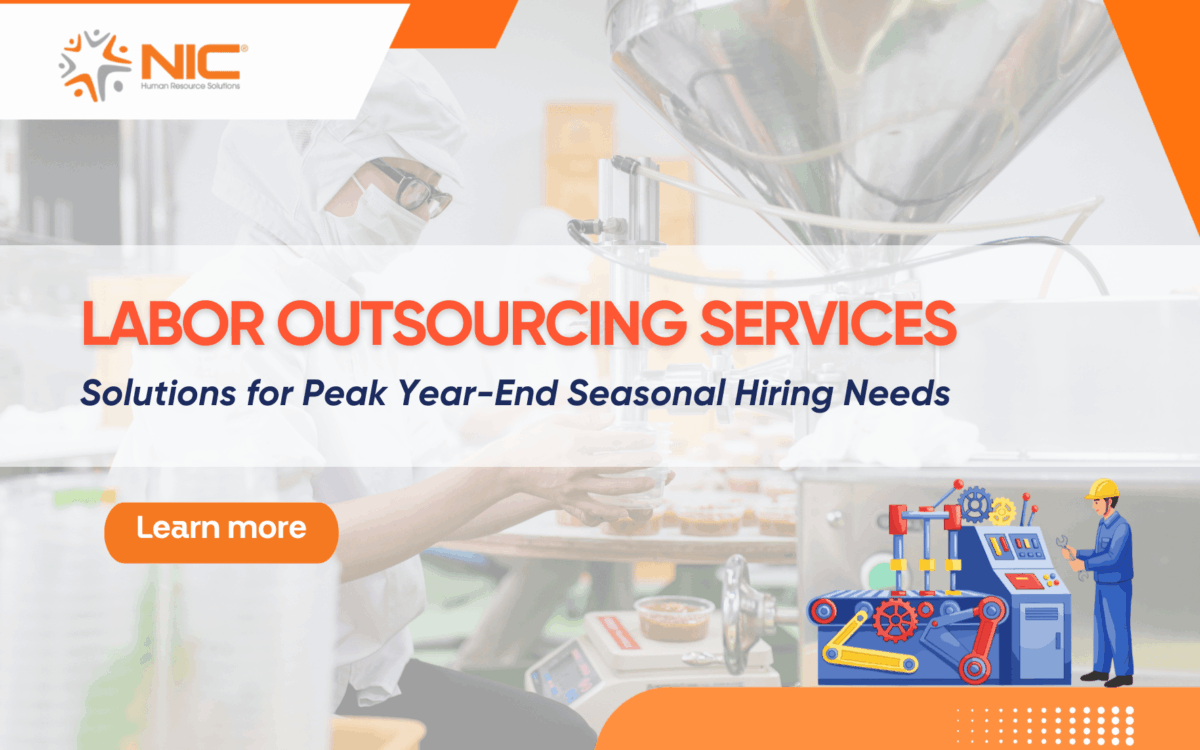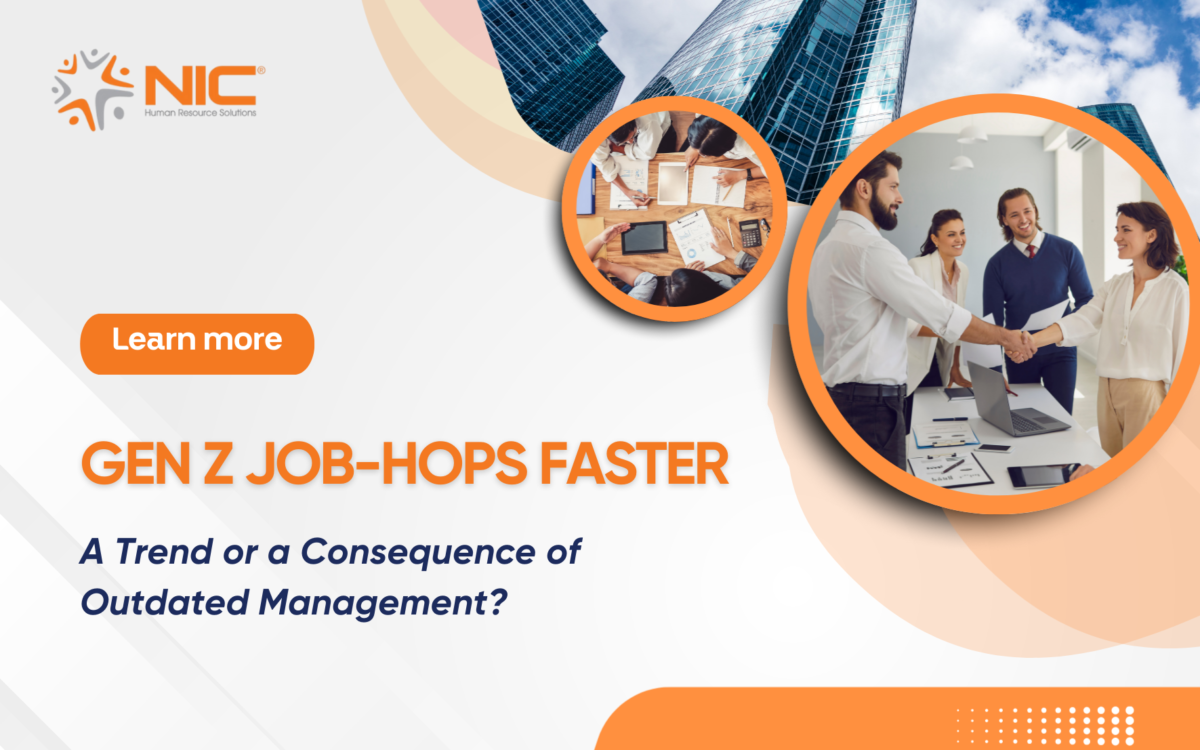Gen Z and the New Era of Work-Life Balance:
What It Means for Employers
28/10/2024
In the rapidly evolving world of work, a new generation is quietly redefining traditional norms. Gen Z, born between 1997 and 2012, is entering the workforce with fresh perspectives on; work-life balance, mental health, and personal well-being. A recent SurveyMonkey study highlights how younger workers are reshaping work-life integration; offering new insights for companies. Especially those aiming to attract and retain top talent in industries such as staffing services in Vietnam.
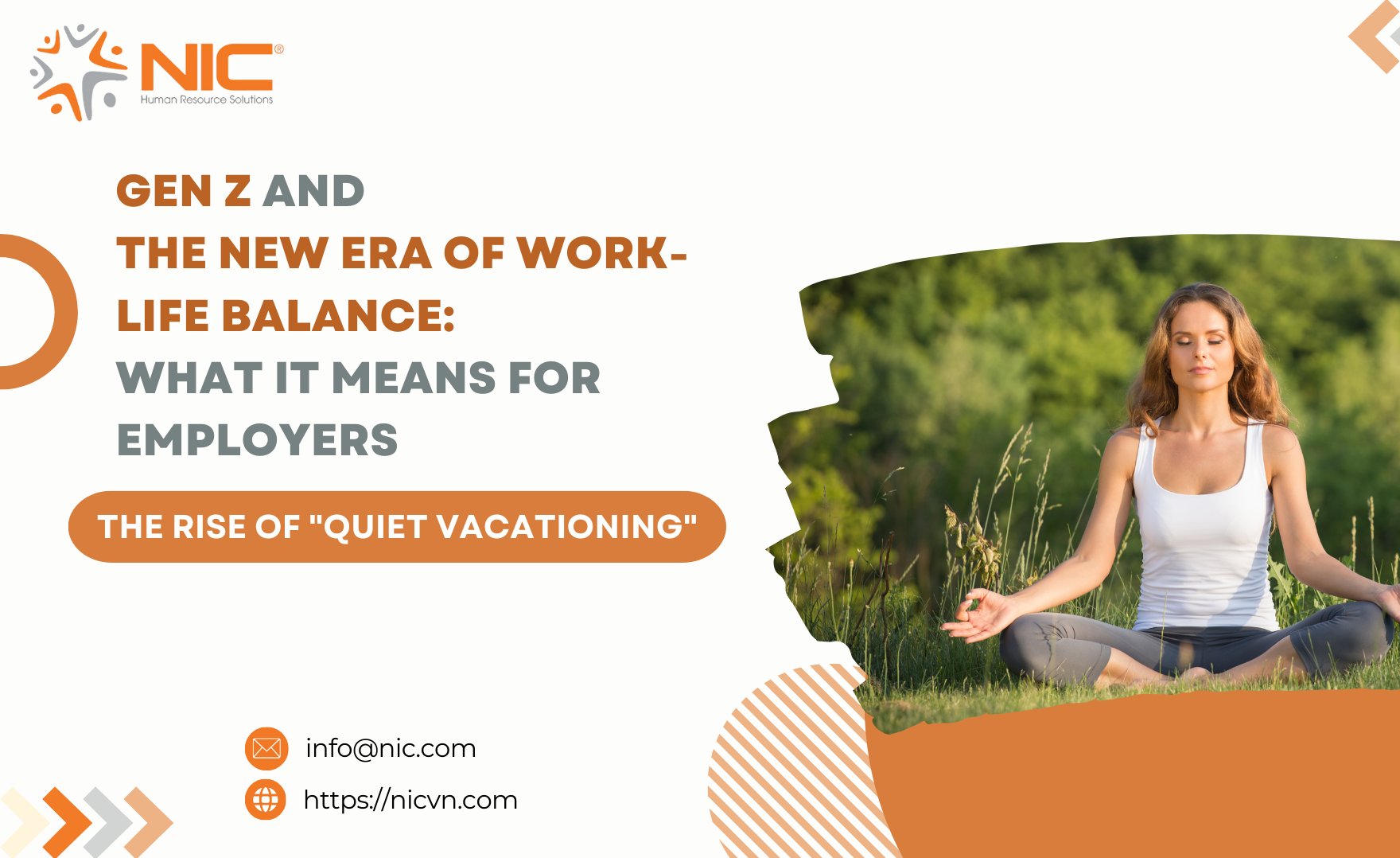
The Rise of “Quiet Vacationing”
One of the standout trends revealed in the SurveyMonkey poll is the concept of “quiet vacationing.” Instead of formally requesting vacation days; many younger workers are using sick days to mentally recharge. In the past year, 36% of Gen Z and Millennials have taken a quiet vacation, compared to 27% of Gen X. This growing trend reflects the priority Gen Z places on personal well-being; even if it means bending conventional work norms.
This shift isn’t only about vacations; it’s part of a broader move where younger employees challenge the “always-on” mentality. Gen Z workers are more proactive in seeking rest and balance; as opposed to burning out from overwork. Employers offering payroll outsourcing services in Vietnam or staffing solutions need to recognize this shift to attract talent; who value flexibility in their work environments.
Mental Health Days: A Non-Negotiable for Younger Workers
In addition to quiet vacations, mental health days are becoming increasingly non-negotiable for younger workers. The SurveyMonkey poll shows that 36% of Gen Z employees take sick time for mental health and self-care; compared to 30% of Gen X workers. This underscores the growing importance of mental health as a key aspect of work-life balance. work-life balance.
For employers, this is a signal that supporting mental health is no longer optional—it’s essential. Companies that provide access to mental health services and create a culture; that encourages employees to take care of their well-being will be better positioned to retain talent. Businesses, including those offering EOR services in Vietnam or dịch vụ hợp thức hóa lao động; (labor legalization services), should adapt their policies to ensure that mental health support is a core part of their employee benefits. work-life balance.

The Blurring of Work and Life Boundaries
One of the most significant shifts in recent years is the blurring of boundaries between work and personal life. As remote work and flexible hours become more common; Gen Z is at the forefront of this new reality. Younger workers are less interested in rigid schedules and more focused on outcomes. They value the flexibility to work where and when they feel most productive; even if that means taking breaks during the day to recharge.
For companies engaged in staffing services or outsourcing services, this trend offers an opportunity to reshape their work culture. Rather than focusing on the traditional 9-to-5, businesses can emphasize results-oriented productivity, allowing workers the autonomy to deliver high-quality outcomes without strict time constraints. work-life balance.
Employer Expectations and Gen Z Engagement
Despite the positive shifts brought by flexibility, some employers struggle to engage Gen Z workers effectively. A RedBalloon survey found that 68% of small business owners believe Gen Z employees have reliability issues, while 62% report concerns over divisiveness in the workplace.
However, this may stem from misaligned expectations. Many employers expect Gen Z to be proficient with workplace technologies, but not all younger workers have had equal access to the necessary educational opportunities. Companies, including those in EOR services or staffing firms in Vietnam, may need to invest more in training and development to bridge this gap. work-life balance.
Moreover, with the rise of remote work, fewer face-to-face interactions may hinder the development of soft skills. Mentorship programs and training that focus on communication and collaboration can help new hires, especially in mass recruitment and outsourced recruitment services, thrive in the modern workplace. work-life balance.
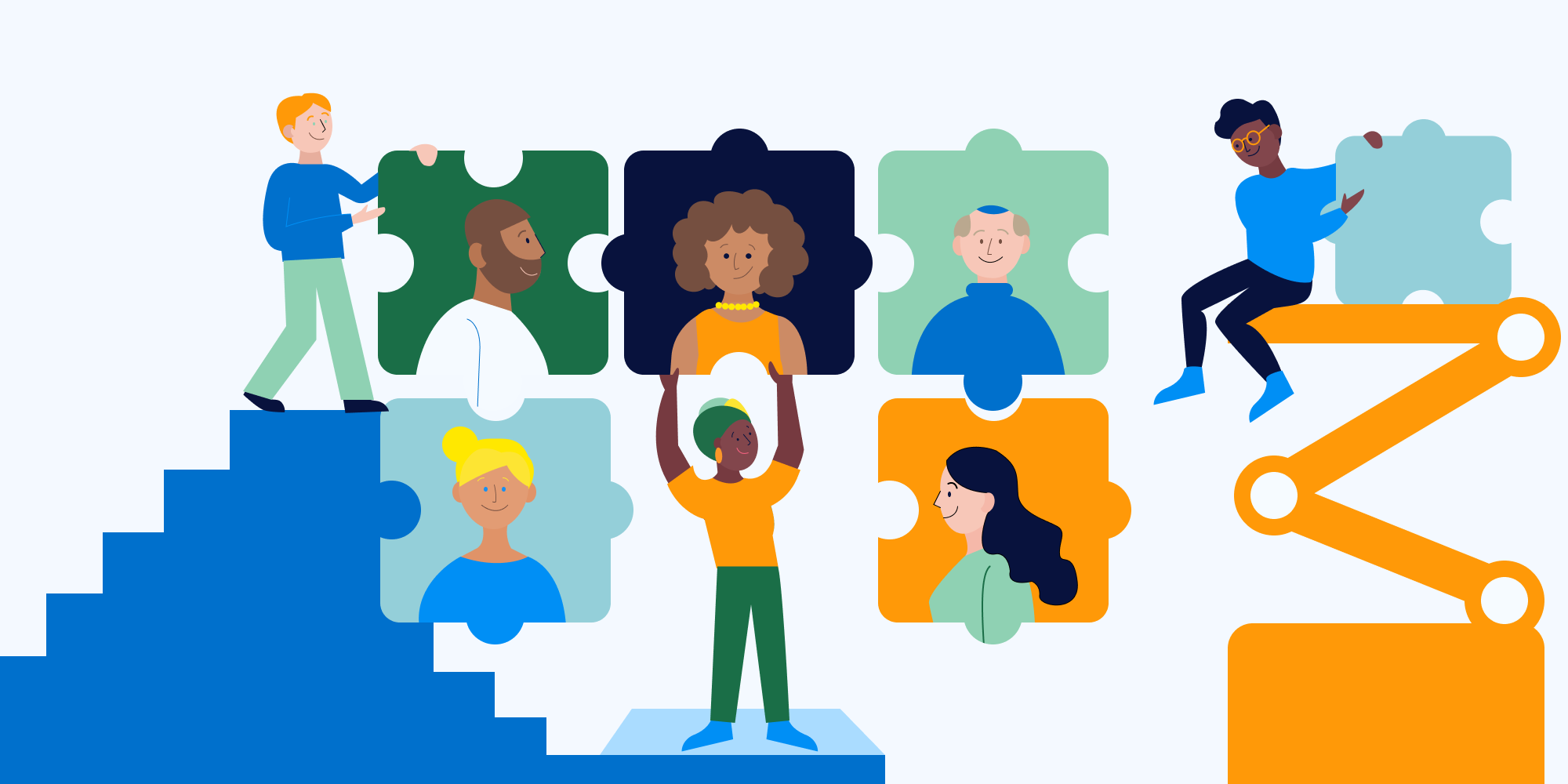
Building a Culture for the Future
Looking ahead, the workplace is undergoing a profound transformation. Gen Z is leading the charge toward a more flexible, mentally healthy, and balanced work environment. For companies like Nic Global, embracing this shift will be crucial to fostering a culture where younger employees can thrive. work-life balance.
Strategies to consider include:
- Flexible Work Policies: Offer remote work options, hybrid schedules, or flexible hours to help employees balance their professional and personal responsibilities. work-life balance.
- Mental Health Resources: Provide access to mental health services, such as counseling, and encourage the use of mental health days.
- Training and Development: Invest in soft skills training and ensure that new hires, particularly those brought in through mass recruitment services, have the tools to succeed. work-life balance.
- Results-Oriented Culture: Shift the focus from time-based productivity to outcome-based evaluation, recognizing the importance of the quality of work over the number of hours worked. work-life balance.
Conclusion: Embracing the Future of Work
As Gen Z continues to redefine the workplace, employers must listen, adapt, and innovate. Companies that embrace flexibility, support mental health, and foster open communication will not only attract and retain top talent but will also build a work culture that ensures long-term success. At NIC Global, we remain committed to evolving our workplace to meet the needs of a diverse and modern workforce, ensuring that each team member thrives both personally and professionally.

For contact and support:
Facebook: NIC Global – Human Resource Solutions
Linkedin: NIC Global Sourcing JSC
Website: www.nicvn.com
Email: info@nicvn.com
Hotline: 0981.23.43.76
Address:
- Hanoi Office: No. 3A Thi Sach, Pham Dinh Ho Ward, Hai Ba Trung District, Hanoi, Vietnam
- Ho Chi Minh City Office: Dakao Center Building, 35 Mac Dinh Chi, District 1, Ho Chi Minh City, Vietnam
See more:
Payroll service
Staffing service
EOR service

